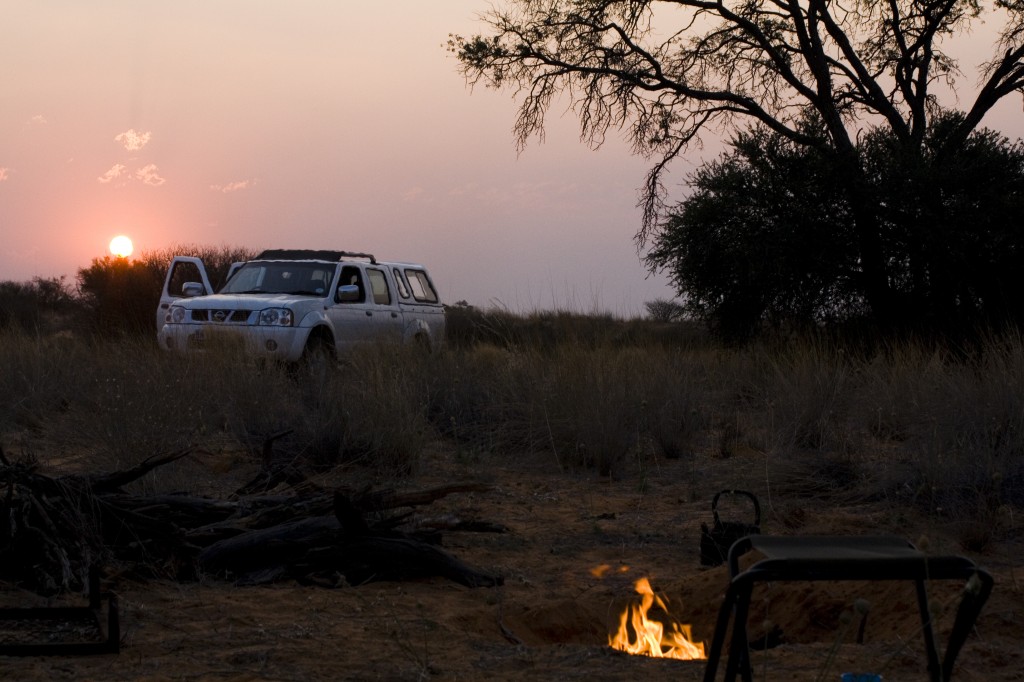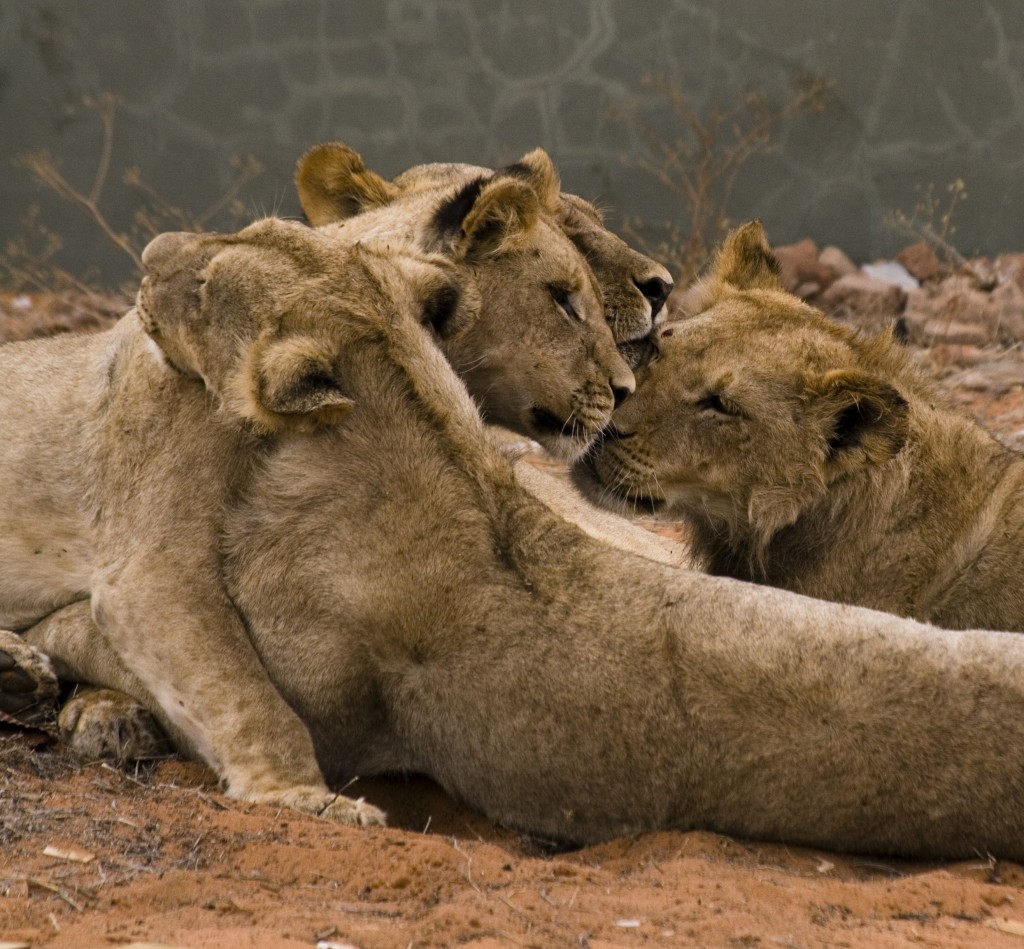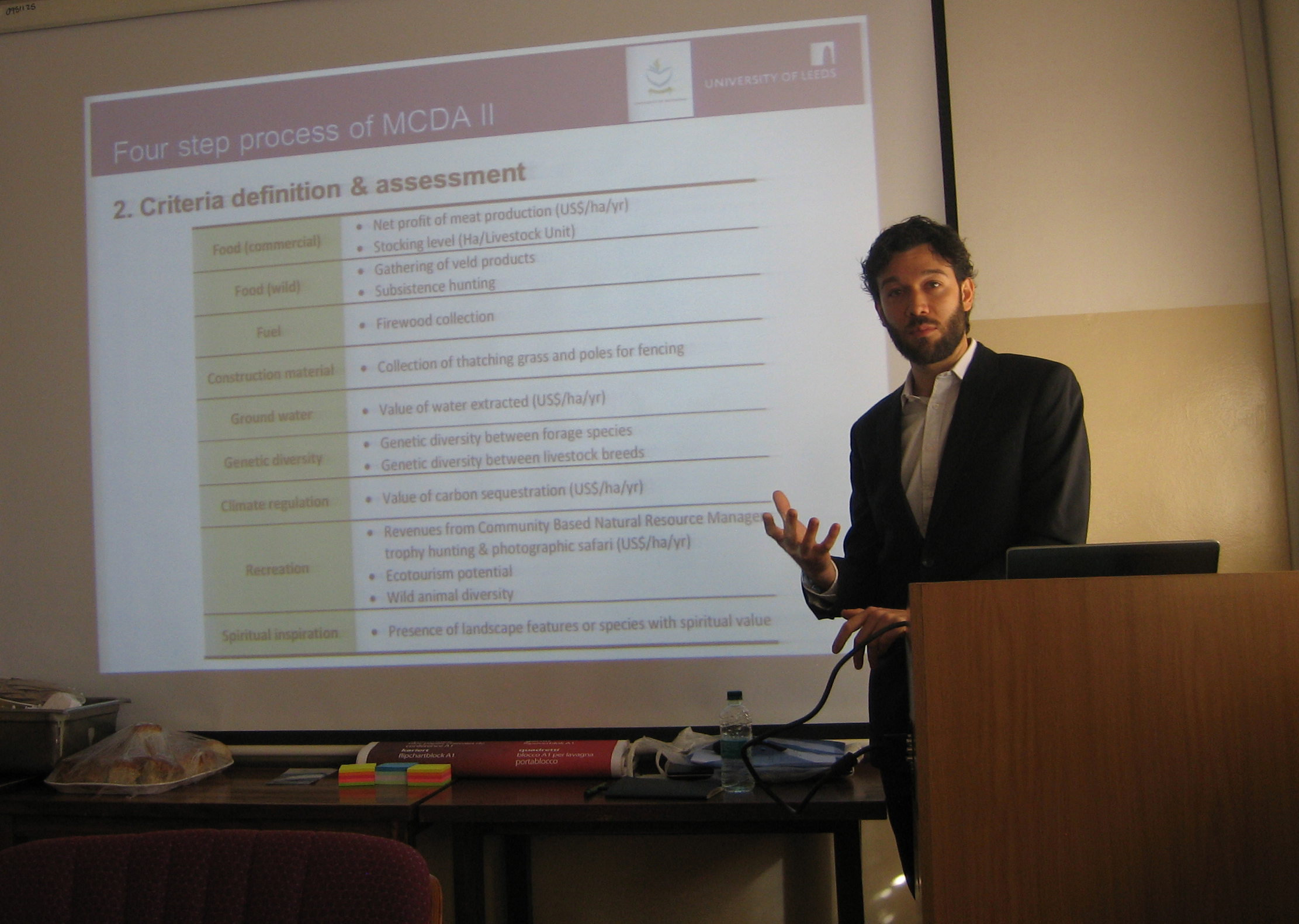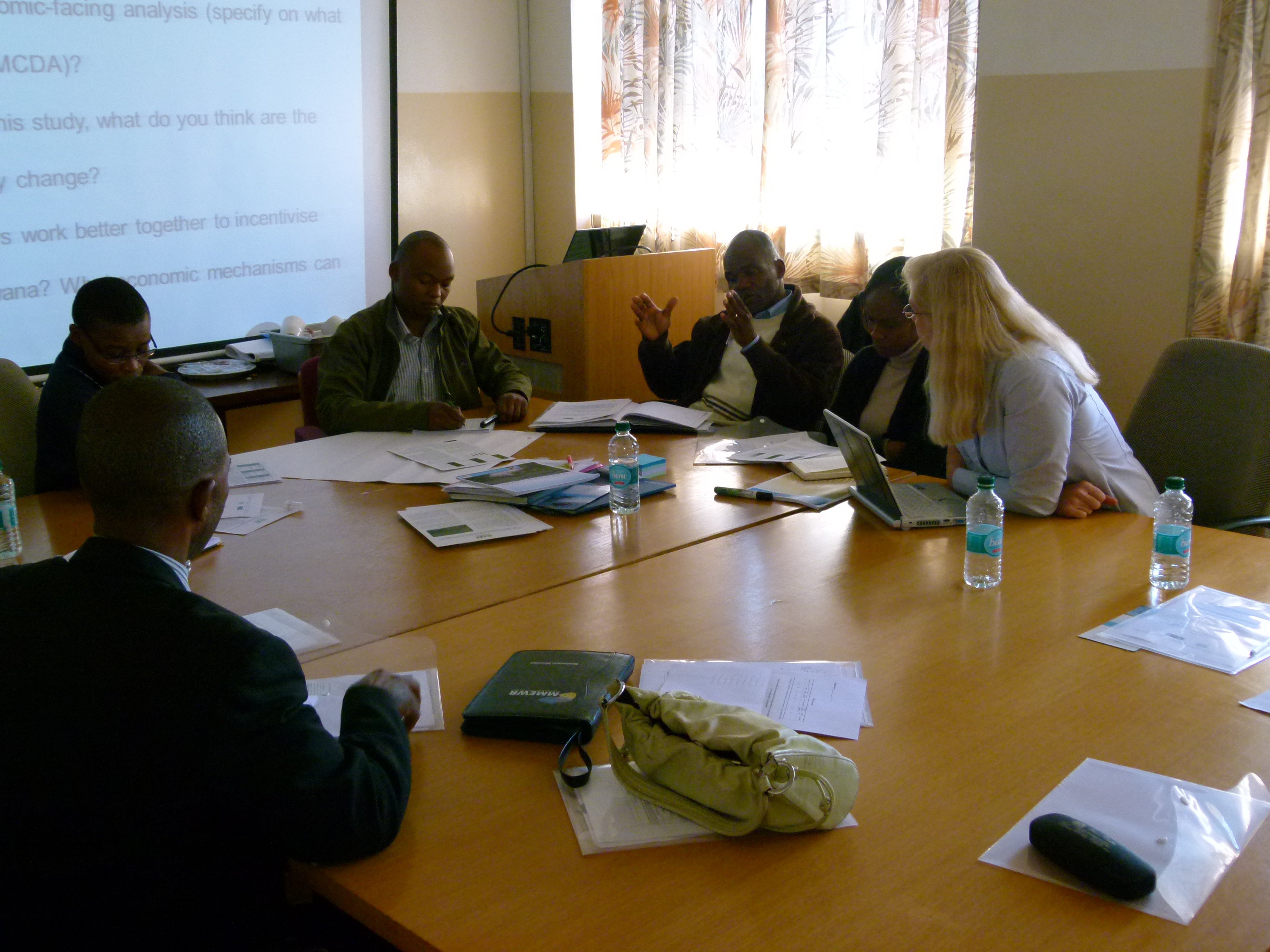Sharing a field research experience from Botswana’s drylands
By Nicola Favretto, N.Favretto@leeds.ac.uk
Almost a year has passed since I joined an exciting research project aimed at finding ways to fight land degradation in Southern Africa (http://see.leeds.ac.uk/research/sri/eld/). While both scientists and the media have widely stressed how vulnerable people are to environmental change, and how important fighting land degradation is to sustain the livelihoods of the poorest dryland communities, I have always wondered what a researcher like me could do to stimulate a positive change. My research experience in Botswana has opened my eyes to what being a ‘rangeland user’ means, where the availability of grass, cattle, goats, sheep, wildlife, fuelwood and a range of wild edible plants plays a vital role in sustaining the life of local communities. Decreasing levels of soil fertility due to environmental change and human action, combined with increasing levels of degradation and desertification, translate into decreased access to all these natural resources (called ‘ecosystem services’) that people rely on to sustain their living. But, what are scientists doing to help avoid the negative social and economic impacts of land degradation? My brief answer is that they are using research to become better informed. Researchers are thinking, understanding, exploring, interacting and proposing new ways forward. To do this requires a passion and willingness to listen to what people think.
My assignment started with an inspiring 3-month field trip to the southern part of Botswana, to the Kalahari rangelands, where I had the unique opportunity to meet a number of herders and private farmers involved with cattle and game ranching.

Cattle famer in Khawa
The aim of my trip was to understand how valuable ‘ecosystem services’ are to these people and what useful measures could be applied, according to their own perceptions, to tackle the most urgent environmental problems that they are facing. People tend to think that doing fieldwork research in a developing country is close to going on a ‘paid holiday’. In reality, it is a tough job, particularly when you have to move to a wild, unknown place in the developing world and adapt to the local conditions. Being closely linked to reality and able to establish a close human contact with the people you talk to are the most important features. On the other hand, I must admit that driving for thousands of kilometres on challenging sand tracks on a 4×4 and wild camping under the Botswana’s starry night sky was one of the most personally rewording aspects of my job.

Wild camping in the bush
And it certainly isn’t every day you get the opportunity to hang out with a group of lions in the bush rather than being in front of your computer in your office.

Group of lions laying next to my car
But unforgettable moments of freedom must be followed by consistent intellectual work once the field visit is finished. It’s not all about exploring new places and taking photos! Translating all the information gathered into useful analysis that can inform future policy decisions and actions requires a deep understanding of the ecological, economic, and policy processes that underlie the analysed problems. Several scientific outputs were produced by myself and the wider team as a result of this analysis and I do hope that this new knowledge will be used fruitfully by those who are proactively engaged in the fight against land degradation in Botswana.
To help enable this impact, a policy workshop was delivered as a final output of this project on 8 July 2014. So, no time for 4×4 driving and camping this time, but we did have an excellent opportunity to stimulate discussion on our findings with a range of government departments, international organisations such as the United Nations and civil society.

Presenting research findings at the workshop
This workshop gave me the chance to meet professionals who care about the state of the environment in their own country; who know better than anybody else the range of problems faced by their pastoral, wildlife-dependent and farming communities. Their knowledge and commitment, combined with the efforts made by academic researchers like us in the identification of possible solutions, are important to ensure that the promotion of sustainable ways of managing natural resources remains at the top of the political agenda. However, finding solutions is often difficult and not clear cut. Political decisions will always have to mediate contrasting interests so that the different views and interests in society are taken into account. None of the solutions we identified in this project will ever be a ‘winning’ one for all of these varied groups, but I am positive that collaborative solutions like those fostered in this project can be implemented so that positive environmental and social development impacts can be delivered.


